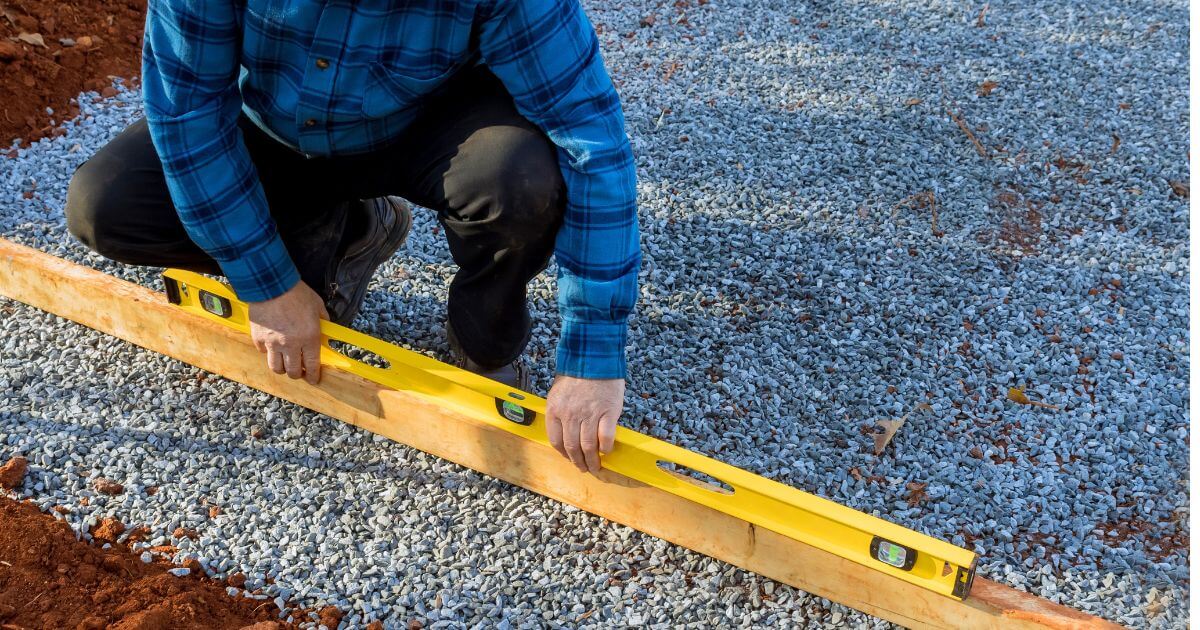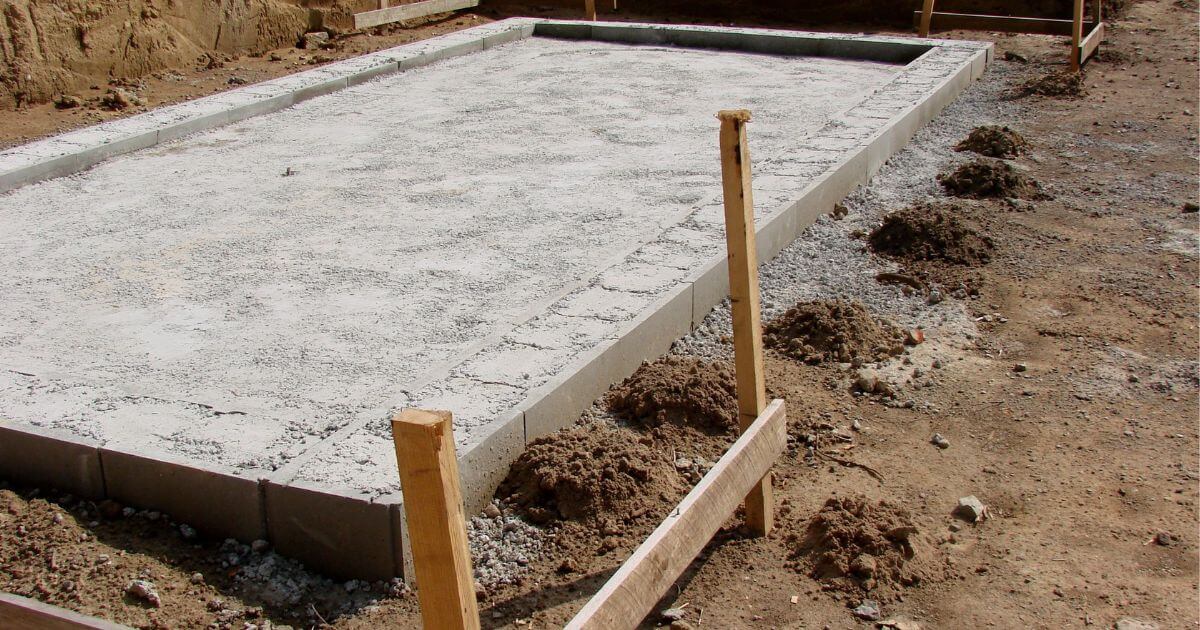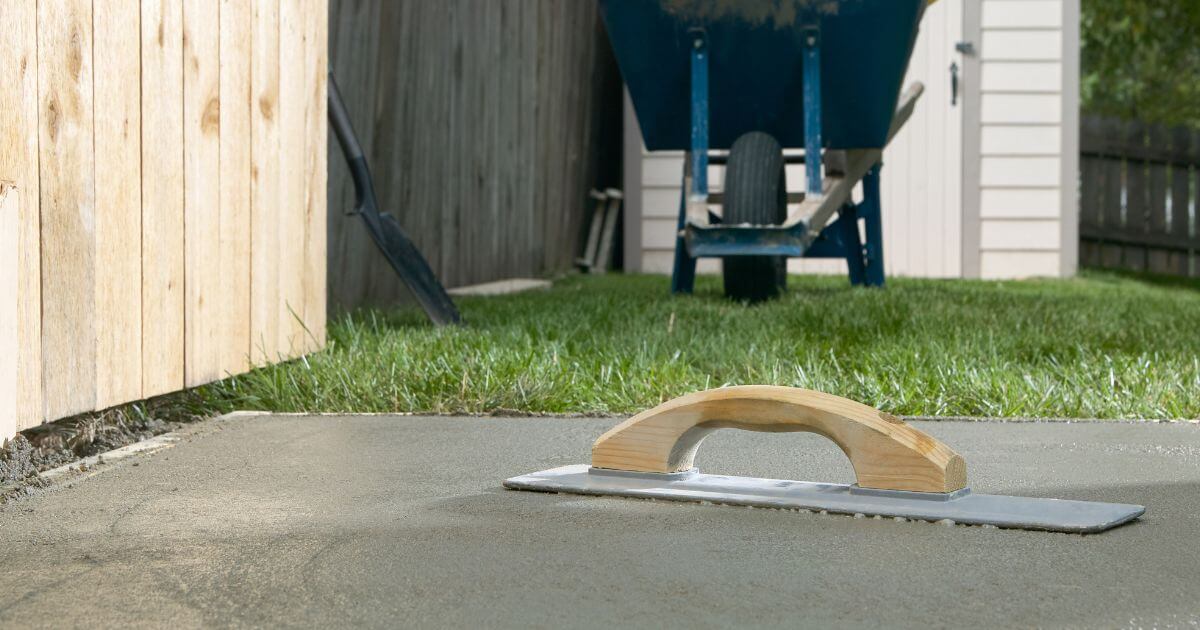What is the Best Foundation for a Shed?

Choosing the right foundation for an outdoor shed is crucial for its longevity and functionality. The best shed foundation largely depends on the shed’s size, purpose, and location. In today’s Sunrise Structures blog, we will take a deep dive into the world of shed foundations, popular foundation options, and important considerations.
Popular Shed Foundation Options
The foundation serves as the anchor of the shed, providing a level and sturdy base that protects it from moisture, pests, and shifting ground. By choosing the right foundation for your outdoor structure, you will be protecting it from the elements and extending its lifespan. We’ve outlined some of the most popular shed foundation options below.
- Concrete Slab Foundation: Ideal for large or permanent structures, concrete slabs provide a stable and durable base. They are the best shed foundation for heavy-duty use and protect against moisture and pests. This shed base option is particularly suitable for workshops, garages, or sheds that store heavy equipment.
- Gravel Pad Foundation: A gravel pad offers good drainage and is simpler to construct than a concrete slab. It’s suitable for medium-sized sheds and is particularly effective in areas with heavy rain, as it helps prevent water accumulation around the shed’s base.
- Concrete Pier Foundation: This involves setting concrete piers into the ground below the frost line, creating a stable and level base. It’s a great storage shed foundation option for uneven terrain or areas with frost heave. The air circulation under the shed provided by this foundation type helps prevent moisture-related issues.
- Pressure-Treated Wood Timbers or Skids Foundation: Using pressure-treated wood is a cost-effective and straightforward option, especially for small to medium-sized sheds. It’s a shed base option suitable for level grounds and provides adequate support while offering some protection against moisture and pests. This type of shed foundation option is commonly used for garden sheds and storage units.

Each of these storage shed foundation options has its unique advantages and considerations, making it essential to evaluate the specific requirements of your shed project to ensure a lasting and reliable outcome. Before determining the best shed base for your outdoor structure, consider the following important factors outlined in the below section!
Shed Base Options: Consider These Factors
Before embarking on selecting the right shed base option for your outdoor structure, several key considerations must be thoroughly evaluated. If you’re wondering how to choose the best shed base option, here is where our experts recommend starting.

- Purpose and Size of the Shed: The intended use and size of the shed are crucial in determining the best shed foundation type. Larger, heavier structures like workshops or garages require more robust foundations like concrete slabs, while smaller sheds for garden tools may only need a gravel or wood timber base.
- Ground Conditions and Topography: The nature of the ground where the shed will be built greatly influences what the best shed base will be. Uneven terrain, areas prone to flooding, or regions with frost heave require specific storage shed foundation options that can handle these conditions, like concrete piers or raised gravel beds.
- Weather and Climate: Local weather patterns and climate conditions should be considered. Areas with heavy rainfall or snow require foundations that offer good drainage and moisture resistance, while hot, dry regions might have different considerations for material durability and heat resistance.
- Accessibility and Installation: Consider how easy it is to access the shed site for construction and the complexity of installing different types of foundations. Some shed foundation options require professional installation and specialized equipment, increasing the overall cost and time required for setup.
- Budget and Long-Term Maintenance: The cost of materials and installation, as well as long-term maintenance requirements, are important factors. Some shed base options may be cheaper initially but could require more upkeep over time, while more expensive options might offer greater durability and lower maintenance costs in the long run

Contact Sunrise Structures for the Best Shed Base for Your Outdoor Shed!
In conclusion, when selecting the best shed foundation, it’s evident that a one-size-fits-all approach does not apply. The ideal shed foundation option depends on a harmonious blend of functionality, environmental factors, purpose, and personal preferences. Whether it’s the robustness of a concrete slab foundation for heavy-duty use, the simplicity and drainage benefits of a gravel pad, the adaptability of concrete piers for uneven terrains, or the cost-effectiveness of pressure-treated wood timbers for smaller structures, each shed base option has its unique merits. The key lies in carefully assessing the specific requirements of the shed in relation to its intended use, location, climate, and budget.
At Sunrise Structures, we can help you figure out the best shed foundation for your outdoor structure. Since 1999, we’ve helped homeowners craft custom sheds, cupolas, and garages. Speak to the professional builders at Sunrise Structures and receive a free estimate on your custom shed!



